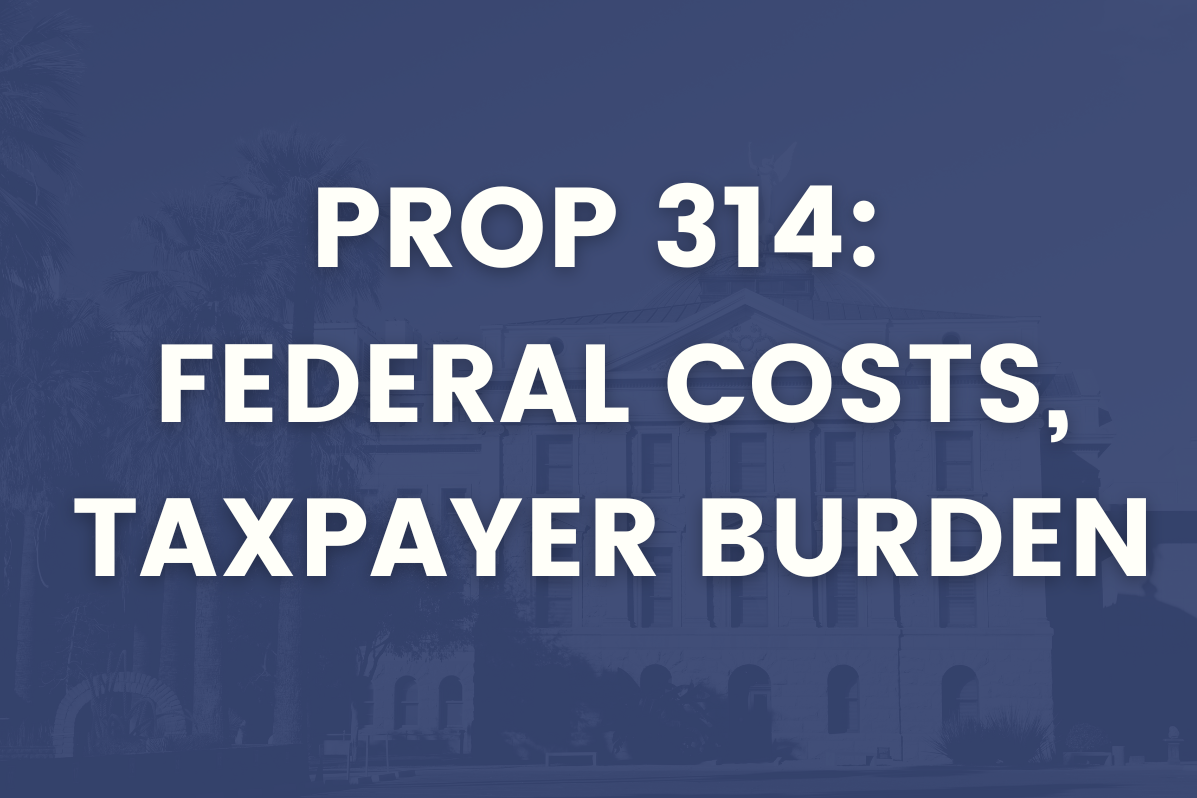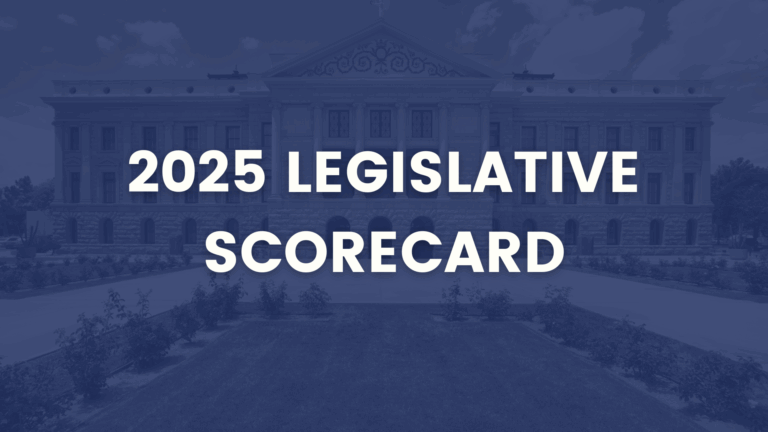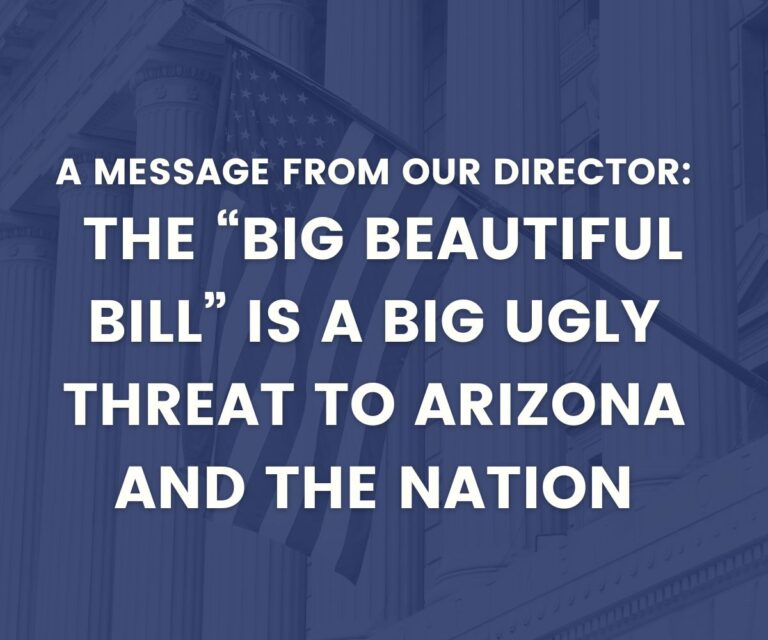
PROP 314 SHIFTS COST OF A FEDERAL ISSUE TO ARIZONA TAXPAYERS
Immigrants are members of our communities and families, helping build healthy and growing state and local economies for us all. In 2021, Arizonan immigrants accounted for about 16 percent of our state’s economic output – that’s $69 billion to our state’s economy. Their hard work and dedication benefits all Arizonans. As such, Arizonans want a humane and orderly immigration system that ensures all immigrants are treated with the dignity and respect.
Proposition 314 intends to have Arizona fix our immigration system by adding new state crimes such as entering Arizona from a foreign nation outside of a lawful point of entry. That’s already unlawful under federal law and our tax dollars are already used for federal immigration law enforcement.
This proposition’s plan for Arizona to do the job of the federal government will not resolve the challenges of our immigration system, much less in a humane and orderly manner. It will force Arizona taxpayers– especially those with lower incomes – to foot the bill for a federal issue whose invoice should be borne equitably by everyone in the US.
High price tag for a policy that won’t work and Arizonans can’t afford
The piece of Prop 314 that would place an exorbitant cost on Arizona state and local taxpayers is Section 5, which mirrors Texas’ Senate Bill 4 (SB 4). Section 5 makes the failure to enter through an official port of entry a state crime. Should Arizona follow Texas’ path, it would likely come at a high cost to Arizona taxpayers with little effect in deterring new immigrants.
Texas is already spending billions of dollars on border security and it’s not working. They have spent and allocated more than $9.5 billion through FY2025.
The Texas Border Coalition (TBC), a group that includes county government members, calculated SB 4 will have an estimated total cost for detaining people for three to six months from $567 million to $1.1 billion. These numbers are based on Texas Department of Public Safety reporting an average of 70,000 apprehensions the last two state fiscal years: 64,000 in 2022 and 75,000 in 2023. This is about 5 percent of total US Customs and Border Protection (CBP) Southwest border encounters in Texas. TBC then estimated an average daily detainment cost of $90 per day from surveying member counties.
Using TBC’s methodology for Texas, 5 percent of total CBP southwest border encounters in Arizona is about 27,000. This is fairly close to the 22,800 people recently estimated by Arizona’s Department of Public Safety. Not being able to survey counties, we use a conservative $92 per day detainment cost based on a recent study in Cochise County. We estimate the cost alone for detaining people under Prop 314 for three to six months in Arizona to be $224 million to $447 million.
The expense above is just an estimate for possible state and local detainment costs. There are additional costs local governments would incur. For example, El Paso County found that it would need a new jail with 400 beds for $162 million and about $60 million annually for operation, prosecution, defense and court expenses. Consider that before and unrelated to the passage of Prop 314, when Pima County was presented with a set of options related to adult detention, building a new jail was estimated to cost $858 million.
Who will pay?
If county officials in Arizona are forced to build a new jail or renovate a current one because of the demands of Prop 314, some local governments would have to raise funding by increasing property and/or sales taxes. Both property and sales taxes are regressive, meaning people who live in or buy things in Arizona with lower incomes would bear the highest burden. According to the Institute on Taxation and Economic Policy (ITEP) Who Pays? report, people with the lowest incomes pay almost triple what those with the highest incomes pay in property and sales taxes in Arizona.
Prop 314 claims to restrict enforcement to border areas. This means Arizonans with the lowest incomes and living nearest to the border will likely bear the highest cost in local taxes.
It would also disproportionally impact Arizona taxpayers who identify as Latino. According to a recent ITEP analysis, Latino households are overrepresented in the lowest 20 percent income group, those who make less than $22,200. Latinos make up about 40 percent of this income group in Arizona compared to accounting for 31 percent of Arizona’s population.
Given our regressive tax system, Arizonans with lower incomes will pay the highest share of their income should this unfunded mandate become law. Texas is already spending billions of dollars to no avail.
Facing a revenue freefall after implementation of the flat income tax, Arizona just resolved an almost $1.6 billion budget deficit for fiscal years 2024 and 2025 through a series of fund transfers that decreased investment in education, housing, and water and transportation infrastructure. Arizona certainly does not have surplus revenues to fund state or local government agency enforcement of Prop 314. The limited Arizonan taxpayer dollars that are available should instead be invested in programs that advance the collective well-being of the people of Arizona.
At a time when Arizona is facing an uncertain fiscal future, Prop 314 inequitably burdens Arizona taxpayers to pay for a federal issue that should be funded by everyone in the nation.



